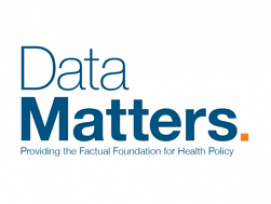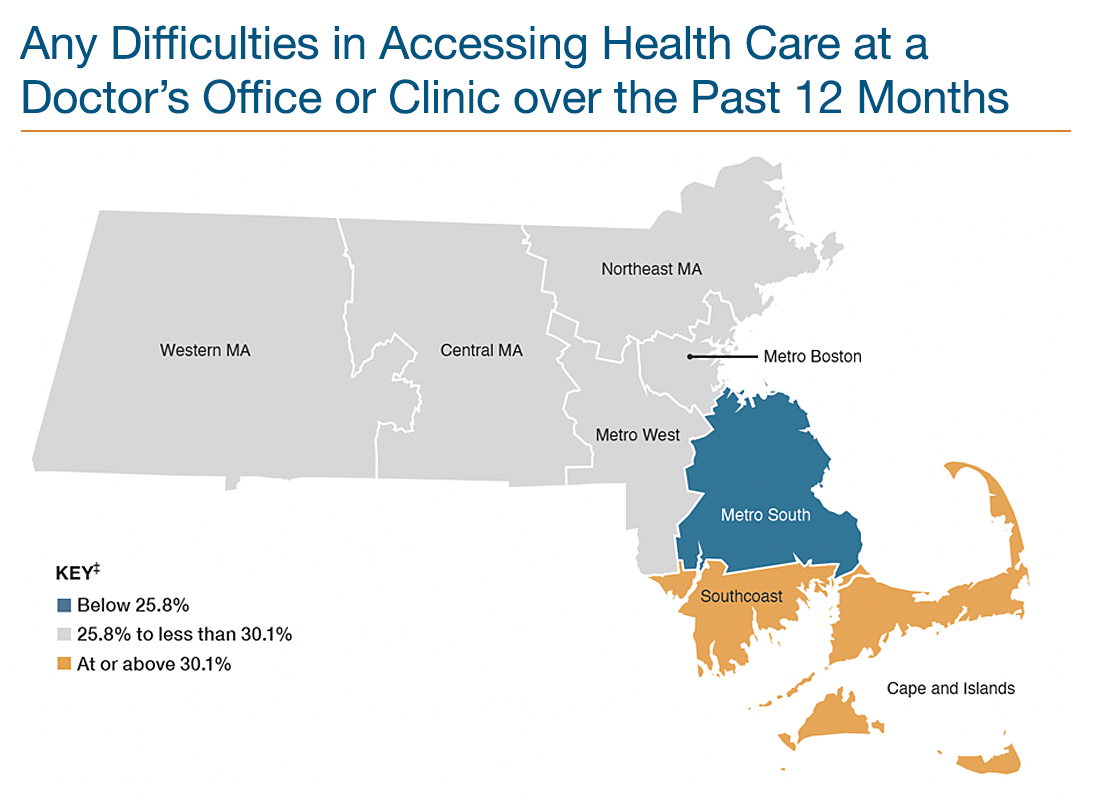Data Matters - May 2022 Edition Email

DATE: May 26, 2022

Opening Message:
This issue of DataMatters focuses on the relationship between where we live and our ability to access timely, affordable, and high-quality health care. CHIA’s second installment in a new series on health care equity explores variations in resident health insurance coverage, access, utilization, and affordability across regions in Massachusetts. More details in “News You Can Use” below. Recent research from Johns Hopkins Bloomberg School of Public Health, highlighted in this month’s “Data User Profile,” blends hospital discharge data and data from the U.S. Department of Housing and Urban Development to show the impact of housing policy on health care use.
As always, the “Publications and Data Releases” and “Upcoming Events” sections of DataMatters will keep you up to date on reports CHIA has released recently and events of interest to the local health data community.
New to this issue of DataMatters, we’ve included some exciting open positions at CHIA.
We want to know your thoughts about this newsletter – things you like, things you wish we’d include, suggestions for future user profiles. Please email us at newsletter@chiamass.gov.
News You Can Use
This issue’s “News You Can Use” highlights the second installment of a new research series CHIA has launched on health care equity issues in the Commonwealth and leverages several years of data from the agency’s biennial Massachusetts Health Insurance Survey (MHIS). This installment, Health Insurance Coverage and Care in Massachusetts, 2015-2019: A Baseline Assessment of Gaps by Geographic Region, was released last month. It documents health insurance coverage, access, utilization, and affordability during the period leading up to the COVID-19 pandemic across eight health service regions in Massachusetts.
Findings of particular interest to the team included:
- Massachusetts has an overall high rate of health insurance coverage among its residents: regional rates in continuous coverage ranged from 89.4% in the Southcoast region to 95.3% in Western MA.
- The rates of difficulties accessing care at a doctor’s office or clinic ranged from 25.1% in Metro South to 31.2% in the Southcoast region.
- The rates of unmet health care needs due to cost ranged from 21.0% in the Cape and Islands to 31.3% in the Southcoast region.
These findings highlight the fact that people continue to struggle with areas of coverage and care in different regions due to community characteristics and health care practices within and across geographic regions that may create barriers to care. These factors include racial/ethnic composition, public infrastructure, availability of health care services, and other aspects of the physical, social, and economic environment.
Up next: The most recent MHIS survey is complete, and summary results for the 2021 MHIS will be released soon. The results will include routinely monitored coverage and care measures as well as additional topics such as impacts of COVID-19 and telehealth.
Data User Profile
Each edition of DataMatters features an interview with a CHIA data user, focusing on their experience obtaining our data and how they used it. We are grateful to Dr. Craig Pollack, a practicing physician, professor at Johns Hopkins Bloomberg School of Public Health, and lead author of Using the Moving to Opportunity Experiment to Investigate the Long-Term Impact of Neighborhoods on Healthcare Use by Specific Clinical Conditions and Type of Service*, for discussing his work to merge CHIA Case Mix (hospital discharge) data with similar data from other states and U.S. Department of Housing and Urban Development Moving to Opportunity demonstration data to show the impact of housing policy on health care use. Notes from our edited (virtual) conversation are below.
*link above is to an abstract; for a copy of the complete article, please email cpollac2@jhmi.edu.
What was your research question? Why did you choose that question?
Living in high-poverty neighborhoods has been linked to a range of poor health outcomes, but many existing studies have been observational and may be biased by the constrained choices and non-random decisions families make about where to live. We sought to investigate whether families exposed to housing policies that reduce exposure to high-poverty neighborhoods impacted long-term health care use among adults and children.
Which CHIA data did you use?
We linked data from the Moving To Opportunity (MTO) randomized controlled trial with CHIA’s inpatient discharge records (2004 to 2014), records from California and New York and Medicaid data from four states. The data integration enabled us to look at trajectories of health care use for up to 20 years for adults and children exposed to different levels of neighborhood poverty.
What was your experience using CHIA data?
We are truly grateful that CHIA was willing to engage with our team, helping identify ways to merge the data while ensuring data privacy and security.
Please briefly describe your research and key findings
Children whose family received a housing voucher had lower rates of inpatient hospitalizations and inpatient spending (approximately $143 per year in lower spending over the long-term follow-up) compared to children in the control group. Lower rates of hospitalizations were especially pronounced for children who were younger when their families received a voucher. Examining reasons for hospital admissions, we found significant reductions in asthma- and mental health-related hospitalizations for children whose families received a voucher. In contrast, we did not see differences in rates of emergency department use for children across study arms and did not find significant results for individuals who were adults at the time of randomization. Results were published in Housing Policy Debate (2021, subject of this profile), JAMA, and Health Affairs.
Which findings were particularly interesting, or surprising for you?
We expected that the relationship between neighborhood poverty exposure and children’s hospitalizations might change over time, either becoming more pronounced or diminishing, but did not find this to be the case. Instead, the relationship persisted over the up to 20 years of follow-up.
What "takeaway" information would you like to highlight from your research and/or your experience using our data?
Housing policies can have a profound impact on where low-income families are able to rent homes. In turn, these can have long-term implications for children’s health care use.
Publications and Data Releases
May 2022
CHIA recently published a new report on the profitability, liquidity, and solvency for hospitals and hospital health systems in fiscal year 2021. Data for a majority of acute hospitals (47 of 61), as well as hospital health systems (21 of 25) are included in this report. Data for hospitals with a fiscal year end of December 31 was not due until later and therefore is not able to be included in this report. The full report, including all hospitals and health systems, will be published later this year.
May 2022
An update to CHIA’s National Health Care Statistics was published on May 12. The latest update includes an interactive Tableau version intended to make the report more engaging and accessible. National Health Care Statistics is a compilation of Massachusetts and U.S. data points, similar to many data points that CHIA calculates and releases in other reports, but published by U.S. government sources (U.S. Census and Agency for Healthcare Research and Quality of the U.S. Department of Health and Human Services). The series is produced to facilitate comparisons between Massachusetts and the US performance on these key health care data points. The current edition includes data from 2012 – 2020, and from all U.S. states.
Case Mix database, Hospital and Inpatient Discharge (HIDD), FY2021
April 2022
The FY2021 release of CHIA’s Case Mix database (Hospital and Inpatient Discharge file) is available for data release. The updated release features Massachusetts hospital data from October 1, 2020 – September 30, 2021. It contains discharge-level inpatient diagnostic data which describe the socio-demographic characteristics of patients, the reason for the admission, the treatment and services provided to the patient, the charges, and the duration of the patient’s stay.
April 2022
CHIA’s new baseline report on health care equity in Massachusetts, Health Insurance Coverage and Care in Massachusetts, 2015-2019: A Baseline Assessment of Gaps by Geographic Region, is the second in a new CHIA series exploring health care equity in the Commonwealth. Based on findings from CHIA’s Massachusetts Health Insurance Survey (MHIS) (2015-2019), it provides a baseline assessment of gaps in health insurance coverage, access, utilization, and affordability in the period leading up to the COVID-19 pandemic across eight geographic regions in Massachusetts.
April 2022
CHIA’s comprehensive analysis of Massachusetts hospital performance for FY2020 includes individual hospital profiles for acute and non-acute hospitals based on hospital characteristics, financial performance, services, payer mix, utilization trends, cost trends, and quality over a five-year period through FY2020. The profiles are accompanied by an interactive dashboard allowing users to filter data by hospital, hospital type, and health system.
Upcoming Events and Resources
Events and announcements of interest to our community, organized by CHIA, other Commonwealth agencies, and others.
CHIA Oversight Council
Tuesday, June 21, 2022 – 1:30 p.m.
CHIA’s appointed Oversight Council meets quarterly to discuss agency priorities and agenda-setting. The next meeting is scheduled for Tuesday, June 21, at 1:30 p.m. and will stream live on CHIA’s YouTube channel.
CHIA Data User Workgroups
Tuesday, June 28, 2022 – 3 p.m.
CHIA hosts monthly, public workgroups as opportunities for users of the APCD and Case Mix databases to meet with CHIA’s in-house data experts to discuss analytical techniques and data questions. Meetings alternate between APCD and Case Mix; the next workgroup, focusing on APCD data, will be hosted on Zoom, April 26 at 3 p.m. For more information or to register, visit the information page.
Betsy Lehman Center: Annual Communication, Apology, and Resolution (CARe) Forum, Part 2
Thursday, June 2, 2022 (Virtual)
This interactive event sponsored by CHIA’s sister agency includes testimonials, case study simulations, and group discussions about best practices for patient safety communication and resolution programs. Free and open to all. For more information and to register, visit the the event website.
AcademyHealth Annual Research meeting, Washington, D.C.
Washington D.C., June 4-7, 2022
This annual meeting convenes the foremost experts at the intersection of health, health care, and policy to share important findings and showcase the latest research on how the health system works, what it costs, and how to improve it.Visit the conference website for more information or to register.
Health Policy Commission Board Meeting
Wednesday, June 8, 2022 - noon
The HPC’s 11-member Board meets approximately every six weeks throughout the year to review staff- (or guest)- presented overviews of the agency’s major workstreams, and other topics related to health care cost containment and reform. Major reports, statutory regulations, and publications are authorized by a majority vote at these meetings.
Department of Public Health Public Health Council meeting, June 8, 9 a.m
Wednesday, June 8, 2022 - 9 a.m.
The Public Health Council of the Department of Public Health promulgates regulations, advises the Department on certain major policy decisions and actions and is responsible for voting Determination of Need applications submitted by health facilities. It meets once per month at DPH’s Boston office.The Public Health Council of the Department of Public Health promulgates regulations, advises the Department on certain major policy decisions and actions and is responsible for voting Determination of Need applications submitted by health facilities. It meets once per month at DPH’s Boston office.
Join Our Team
A selection of open positions at CHIA. Please feel free to share broadly with your network. Follow CHIA on LinkedIn for more regular updates.
Associate Manager, Health Informatics and Reporting
Health Informatics and Reporting
Data Quality Analyst
Data Operations and Technology
Health Care Data Liaison
Data Operations and Technology
Health Care Financial Analyst
Provider Finance
Health Informatics and Reporting Analyst
Health Informatics and Reporting
Health Policy Analyst
Provider Finance – Pricing
Research Manager/Researcher, Health Care Data Analysis and Research
Research
CENTER FOR HEALTH INFORMATION AND ANALYSIS
www.chiamass.gov

